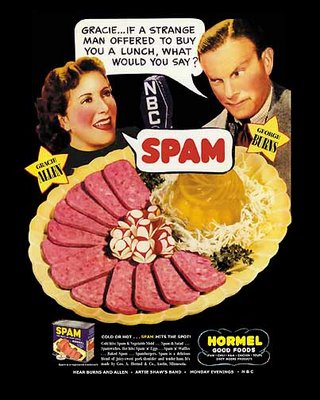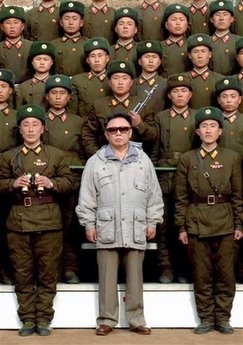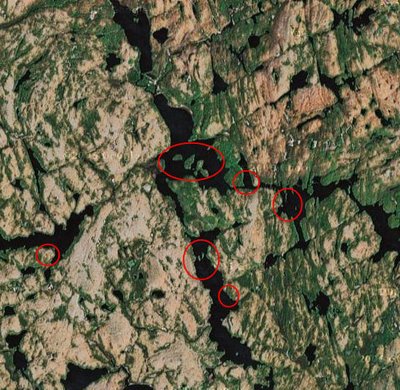My evening walks on the marina though give me pause for reflection. So while that's been a lot of fun in a weird way, camping is much more fun, and with this nice weather - well - I'd rather be camping.
Given that I didn't get a chance to go camping a few weekends ago, and given that I have taken to ruminating about camping, and given that I'd like to provide something of interest to my hundreds of thousands of readers, what follows is a description of some of my core camping equipment - the rest are little things that don't need a product description (e.g. fork, cord, socks) - it isn't complete, but I'll complete it along with way.
Oh, and by the way, here's the pumpkin we carved tonight.

MSR DragonFly Stove
Loud, adjustable flame, runs on naptha white-fuel, lightweight, awesome. Boiling time for 1 liter of water, 3 1/2 minutes. Love it.
Cooking Pot & Lid
Cheap aluminum pot and lid, holds 1 liter of water. Blackened on the base from soot, excellent heat conduction. Lid useful. I think I'd like to get a pot grabber.
Folding Frying Pan
non-stick folding frying pan. Excellent for bacon and eggs, a luxury cooking piece, but folds down, and easy to store. Useful but not vital. I try to bring it in case I catch a fish and want to fry it up.
Nalgene Bottle
This terrific invention is good obviously for storing water in a spill-proof way, but I think the fact that it does not hold on to stain or odours makes a big difference over conventional plastic. Also, on a cold night, you can fill it with boiling water and use it as a hot water bottle.
Stainless steel mug
For tea. For tea. For tea. For tea. For tea. For tea. For tea. For tea. For tea. For tea. For tea. For tea. For tea. For tea. For tea. For tea. For tea. For tea.
Camping Mattress
Primarily I use this for insulation. But it sure helps protect you from bumps and stones and sore hips. This mattress rolls up small, and when you take it out of the storage bag, and undo the valve, the foam structure within expands and draws air into the mattress. Fill the last bit of it with a few well placed puffs of air and seal the valve, and you have a guaranteed warm and comfortable night ahead of you. Heat conduction is a very important principle to keep in mind while in the bush - water conducts heat away from your body 27 times faster than does dry air. The cool earth saps your warmth less so, but still significantly. This is why if you don't have a sleeping bag, at the very least lay down a bed of spruce boughs for insulation.
Sleeping bag
Barring a bed of spruce boughs, my sleeping bag is a mummy-style bag - the hood easily holds a pillow (I always bring an empty pillow case and stuff it with cloths or leaves for a pillow), and it is rated down to -20 Celsius. I've slept in it at that temperature and the only part of me that was cold was my nose. Do not be tempted to stuff your face down into the sleeping bag though - condensation from your breath will moisten the bag and reduce its insulation qualities and make your night miserable. Make sure not to lay it too close to the fire too, sparks will make holes in the synthetic fabric. Mine contains synthethic insulation - down is more expensive and heavier. As long as your sleeping bag is dry, I'm fine with synthetic. I don't need to wear clothes inside it as it is warm, but you can buy a cotton liner for washing.
Compression sack
This is an awesome piece of equipment, ensuring that your sleeping bag is squished down as small as possible for transportation. Remember to store your sleeping bag at home unpacked, preferably hanging in a basement (dry basement), or in a closet. That way you don't risk reducing the insulation qualities of your bag.
Tent
I bought my dome tent at a house-sale in Parkdale one night a few years ago. A couple was going to go to BC and live on an island and were selling their old gear and I picked this 2 person tent up for $40. 2 Folding fibreglass rods assemble as the main structure, and a third provides form to the fly which affixes to the top of the dome. The fly adds a layer of insulating space above the tent, which in turn increases insulation, decreases condensation and makes the structure water resistant. Some really cool tents like some from Hilleberg tents in Sweden have the fly layer part of the main structure. I want one of these:

Compass
It is a good idea to know how to use a compass for camping. Otherwise a compass isn't much use. Basically, use it as a reliable indicator of direction. Stop, observe the needle point to North, and rotate the circular section until the North on it matches the North the needle is pointing too. With the pointy bit, take a bearing on a distant object in the direction you would like to go. Note this object, perhaps on a piece of paper or map. A tree, a ridge, a river bank. Walk to it. Wash and repeat. This way you navigate a series of straight lines, and keep on track. During a clear evening, note the direction of the north star. That helps at night if you are out on a lake. Saved me one evening years ago out on a lake in the fog - I could see above the fog into the sky, but not around me.
Firesteel
This is my primary method of starting a fire. I do not - on stubborn and likely misplaced principle - carry matches with me. I tried making a fire bow on my last solo trip. I used pine for the shaft and baseboard. This was a bad combination. I had everything working but the resin seems to have made the going tough. I'll try next time and keep y'all updated. A classic flint and steel works well as long as you bring char cloth or have tinder fungus prepared (boiled in a solution of ashes for saltpeter and dried out). I'd like to try that too.
More below - but I'll write up some details when I have more energy.
Fishing rod, gear, license
Hatchet
Sharpener
Headlamp
Radio
Lantern
Sheath Knife
Folding Knife
Bucksaw
Stuff bag
Chair
Tarp
































